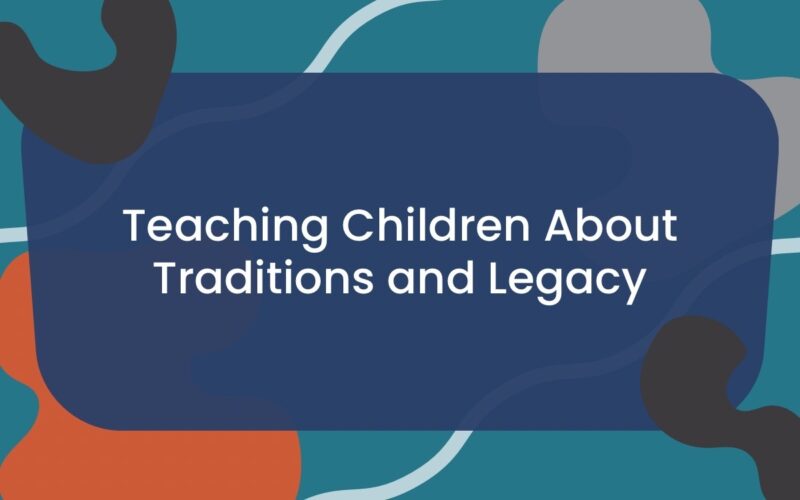Traditions can guide the family ship. They are something we can look forward to sharing, or something that brings back good memories. They’re a way to bind our families together.
Some of these traditions have been passed down for generations. Others are unique to your nuclear family. And of course, there may be some traditions that you’ve discarded.
Now that you have your own family, you may want to share those traditions and keep them alive. But you might also want to do that in a way that doesn’t feel stifling or inflexible.
Here are some tips on how to teach your children about traditions and legacy:
Share Personal Stories
Children love stories, especially when it features your own personal experience or a grandparent/great-grandparent. It helps them feel connected to their lineage and understand their place within the family narrative. Teach children about traditions by sharing personal stories from your own life or your family’s history. These stories can provide insights into the values, beliefs, challenges, and triumphs that have shaped your family over the years.
Celebrate Holidays and Festivals
Participating in cultural holidays and festivals is a wonderful way to introduce children to traditions and legacy. Whether it’s lighting candles for Diwali, decorating eggs for Easter, or preparing a special meal for Thanksgiving, these celebrations offer hands-on experiences that engage kids and make learning about traditions fun and memorable. Encourage children to ask questions, participate in rituals, and learn the significance behind each celebration.
Explore Cultural Activities
Culture is an amazing buffet! Expose children to a variety of cultural activities, such as music, dance, art, and cuisine, from different parts of the world. This will broaden their appreciation for diversity, and highlight the universal themes that connect us all. Visiting museums, attending cultural events, or trying out traditional recipes together as a family will encourage children to express themselves creatively and explore their own cultural heritage.
Document Family History
Create a family tree or scrapbook that documents your family’s history, including important milestones, photographs, letters, and heirlooms. Encourage your relatives to talk to your kids, and share their own perspective of the family history. This hands-on project can help children develop research skills, critical thinking, and a deeper appreciation for their family’s legacy.
Respect and Understanding
Teaching children about traditions and legacy also involves fostering respect and understanding for other cultures, beliefs, and perspectives. Encourage open-mindedness, empathy, and curiosity by exposing children to diverse experiences and encouraging them to learn from others who may have different backgrounds or viewpoints. Emphasize the importance of respecting traditions, even if they may seem unfamiliar or unconventional.









